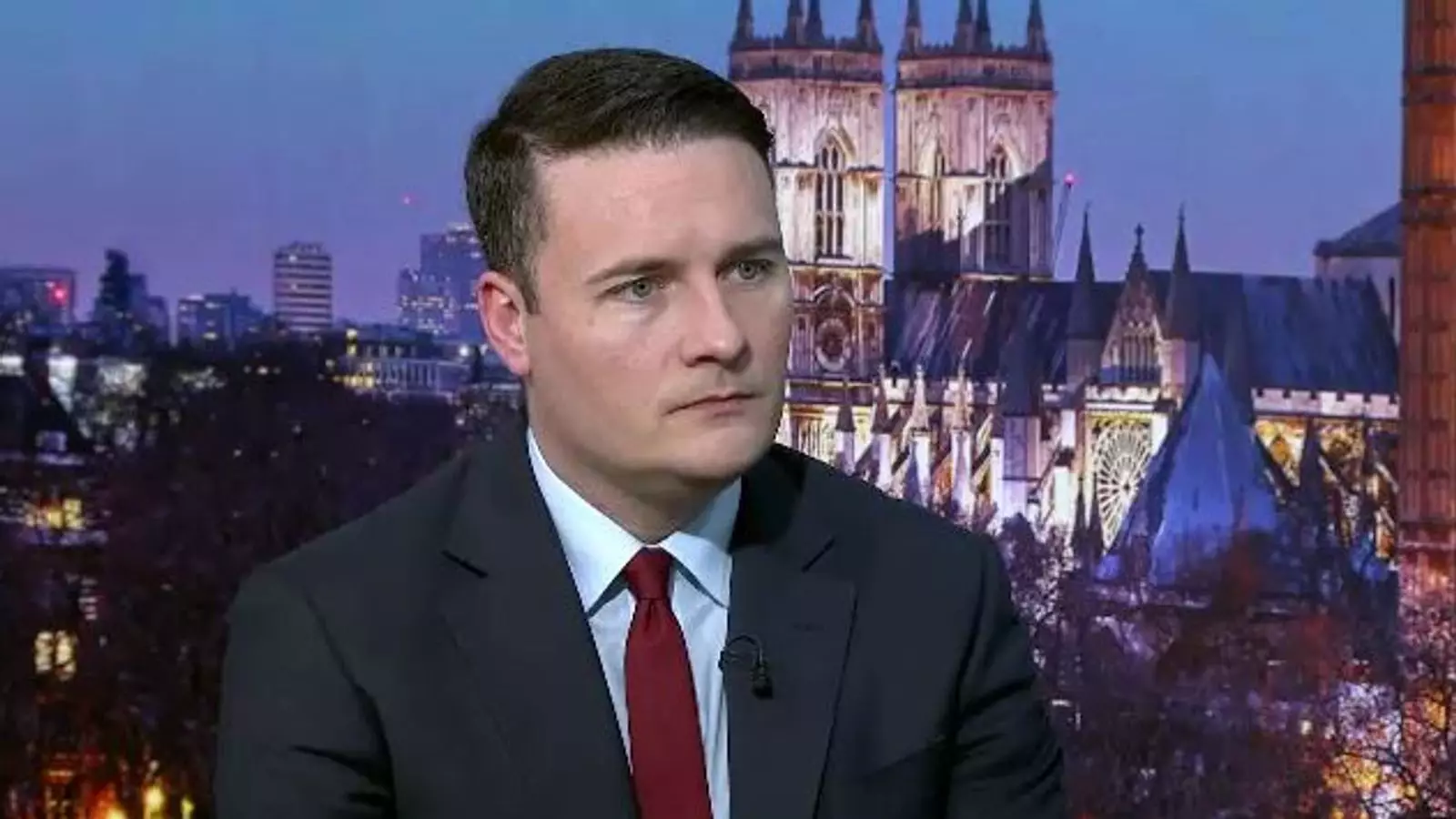In a surprising turn of events, Wes Streeting, the newly appointed Secretary of State for Health, has shocked many by announcing the scrapping of NHS England. This decision, he insists, is a necessary step towards rejuvenating the National Health Service (NHS). However, the underlying implications of this choice are profound and troubling. While Streeting may tout a strategic overhaul aimed at reducing bureaucracy, the decision to eliminate NHS England raises critical concerns about the future infrastructure of the NHS and the devastating effects it will have on individuals, particularly those looking at potential job losses.
Streeting’s admission that he did not foresee such a drastic need for change speaks volumes about the unpredictability inherent in political leadership. When he took office, a reorganization of this magnitude was not on his agenda. This indicates either a lack of foresight or an unpreparedness to address the existing challenges within the NHS. Thus, while he claims that this transformation will reduce redundancy and bureaucratic inefficiencies, one must question the rationale behind such a sweeping edict when evidence of systemic issues has been apparent for quite some time.
The Human Cost of Efficiency
One cannot ignore the human ramifications of this decision. Streeting has openly acknowledged that over 9,000 jobs are to be axed in this restructure, affecting around half of those currently employed by NHS England. This revelation paints a grim picture for thousands of workers in an already strained labor market. He acknowledges the anxiety this creates, suggesting a degree of empathy, yet empathy offers little solace to those facing unemployment. The dismissive nature of such restructuring often prioritizes abstract efficiency metrics over the lived realities of hard-working individuals struggling to make ends meet.
The statement that the government will handle these transitions with “care and respect” feels hollow in the face of potential layoffs. While it is essential for a government body to retain a degree of compassion, it is equally crucial to approach decisions that will lead to massive job cuts with gravity and transparency. No amount of verbal reassurances can nullify the fact that real lives are at stake, and this disconnect embodies the broader issue of how political decisions often overlook the individuals who make organizations function.
Redefining Public Health Priorities
Amidst the turmoil, Streeting maintains that Labour’s objective remains a fully public health service available without charge, which directly contradicts the specter of privatization often invoked in political rhetoric. His assertions about employing private sector capacities to alleviate pressure on the NHS introduce a dual approach that, while logistically sound on some fronts, ultimately raises concerns about service equity. If patients gain access to a two-tier system favoring those who can afford private care, then the purported commitment to maintaining an entirely public service bears questioning. It feels like a dual standard may be emerging, where the government’s good intentions and realities diverge significantly.
One must juxtapose the current ethos of the NHS against its historical backdrop. Streeting is quick to highlight that the Conservatives inherited what he describes as “the shortest waiting times and the highest patient satisfaction.” Continuing to utilize this narrative while enacting measures that could lead to dire job losses is playing a dangerous game of smoke and mirrors. The NHS, intended as an institution of equitable healthcare, risks becoming a shadow of its former self if efficiency is prioritized over service quality and accessibility.
The Political Narrative Ahead
The Labour government must navigate a complex narrative terrain moving forward. While the overarching goal of reinstating democratic control to the NHS might strike a chord with the public, the immediate ramifications of job losses cast a heavy shadow on that ambition. There is a clear demand for honesty and integrity in how such transformations are communicated and executed.
For all the discussions around efficiency and operational effectiveness, it is crucial to remember that healthcare is not merely a service protocol or administrative task; it centers on humanity. Balancing the aspirations of a restructured NHS with real, on-the-ground ramifications will be vital. The challenge ahead lies not in reducing roles indiscriminately but in ensuring that transformation enriches the NHS without sacrificing the very people dedicated to its mission.


Leave a Reply